Firm Dynamics and Employment Outcomes
In a market economy, firm foundations and closures are important drivers of resource (re)allocation, structural change, and economic development which is particularly important with respect to the economic transformation of East Germany from a state-directed to a market economy. At the same time, job displacement coming along with structural change may have serious consequences for affected employees, such as unemployment, earnings losses, or lower job quality in a new job. This research group uses microeconometric methods to analyze foundation, evolution, and failure of firms, the amount and quality of jobs created by new firms and the consequences of firm closures for employees, in particular in terms of labor market outcomes such as employment and wages.
Research Cluster
Productivity and InstitutionsYour contact

Mitglied - Department Structural Change and Productivity
EXTERNAL FUNDING
01.2020 ‐ 06.2024
The Rise of Populist Parties in Europe: The Dark Side of Globalization and Technological Change?
VolkswagenStiftung
Globalisation may have increased prosperity in general, but has also led to unemployment, wage inequality, outward migration and, thus, ageing populations in many European regions. This project examines whether these economic burdens lead to votes for populist parties.
01.2019 ‐ 06.2022
MICROPROD („Raising EU Productivity: Lessons from Improved Micro Data“)
European Commission
The goal of MICROPROD is to contribute to a greater understanding of the challenges brought about in Europe by the fourth industrial revolution and the associated ‘productivity puzzle’ in a context of globalisation and digitisation, and to provide alternative policy options to better address these challenges.
This project has received funding from the European Union’s Horizon 2020 research and innovation programme under grant agreement No 764810.
07.2018 ‐ 12.2020
Firm Wage Differentials in Imperfect Labour Markets: The Role of Market Power and Industrial Relations in Rent Splitting between Workers and Firms
German Research Foundation (DFG)
The main purpose of this proposal is to grasp a firmer understanding of how employment rents are split between workers and employers in imperfect labour markets and how labour market institutions, such as unions and works councils, influence the distribution of rents. In that it not only promises new insights into the wage formation process and the likely consequences of important labour market trends like falling unionisation and worker codetermination, but also promises to inform important public policy debates, such as which rights should be granted to organised labour.
02.2019 ‐ 09.2019
Evaluation of the IAB Establishment Panel 2018 and Preparation of a Results Report for West and East Germany
Final report: Fehlende Fachkräfte in Deutschland – Unterschiede in den Betrieben und mögliche Erklärungsfaktoren: Ergebnisse aus dem IAB-Betriebspanel 2018. IAB-Forschungsbericht 10/2019. (in German, English abstract available)
04.2016 ‐ 03.2019
Wage and Employment Effects of Bankruptcies
German Research Foundation (DFG)
The project analyzes the process and the consequences of firm failure. For the first time, evidence on the consequences of small firms’ bankruptcy on employees’ earnings and wages is provided. The project e.g. shows that employees of small firms are more likely to see their employer failing but, at the same time, face smaller earnings and wage losses than employees displaced from larger firms. Check the below research articles for further insights.
01.2018 ‐ 12.2018
Evaluation of the IAB Establishment Panel 2017 and Preparation of a Results Report for West and East Germany
Final report: Lohnunterschiede zwischen Betrieben in Ost- und Westdeutschland: Ausmaß und mögliche Erklärungsfaktoren. Ergebnisse aus dem IAB-Betriebspanel 2017. IAB-Forschungsbericht 6/2018. (in German, English abstract available)
01.2017 ‐ 09.2017
Evaluation of the IAB Establishment Panel 2016 and Preparation of a Results Report for West and East Germany
Final report: Produktivitätsunterschiede zwischen West- und Ostdeutschland und mögliche Erklärungsfaktoren. Ergebnisse aus dem IAB-Betriebspanel 2016. IAB-Forschungsbericht 16/2017. (in German, English abstract available)
Refereed Publications
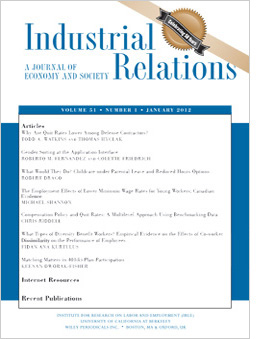
Worker Participation in Decision-making, Worker Sorting, and Firm Performance
in: Industrial Relations, No. 4, 2021
Abstract
Worker participation in decision-making is often associated with high-wage and high-productivity firm strategies. Using linked employer–employee data for Germany and worker fixed effects from a two-way fixed-effects model of wages capturing observed and unobserved worker quality, we find that plants with formal worker participation via works councils indeed employ higher quality workers. We show that worker quality is already higher in plants before council introduction and further increases after the introduction. Importantly, we corroborate previous studies by showing positive productivity and profitability effects even after taking into account worker sorting.
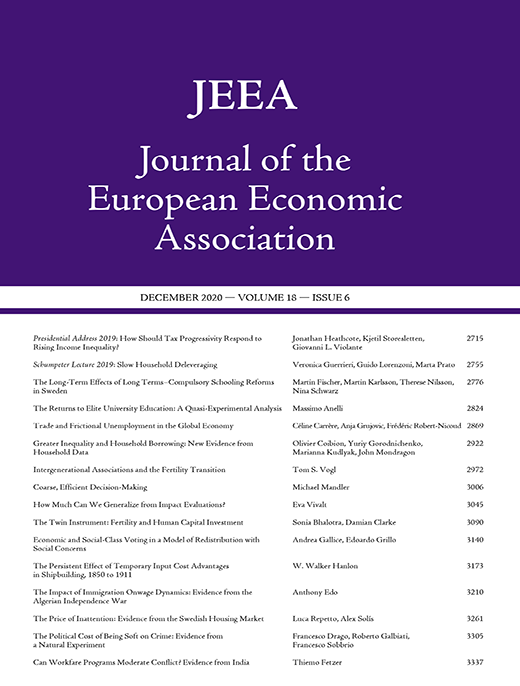
Explaining Wage Losses After Job Displacement: Employer Size and Lost Firm Wage Premiums
in: Journal of the European Economic Association, No. 5, 2021
Abstract
This paper investigates whether wage losses after job displacement are driven by lost firm wage premiums or worker productivity depreciations. We estimate losses in wages and firm wage premiums, the latter being measured as firm effects from a two-way fixed-effects wage decomposition. Using new German administrative data on displacements from small and large employers, we find that wage losses are to a large extent explained by losses in firm wage premiums and that premium losses are largely permanent. We show that losses strongly increase with pre-displacement employer size. This provides an explanation for large and persistent wage losses reported in previous displacement studies typically focusing on large employers, only.
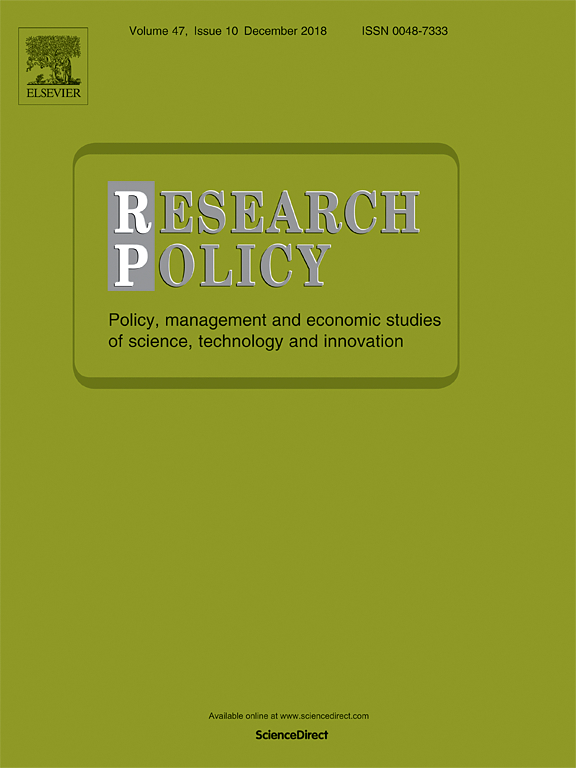
Returns to ICT Skills
in: Research Policy, No. 7, 2021
Abstract
How important is mastering information and communication technology (ICT) on modern labor markets? We answer this question with unique data on ICT skills tested in 19 countries. Our two instrumental-variable models exploit technologically induced variation in broadband Internet availability that gives rise to variation in ICT skills across countries and German municipalities. We find statistically and economically significant returns to ICT skills. For instance, an increase in ICT skills similar to the gap between an average-performing and a top-performing country raises earnings by about 8 percent. One mechanism driving positive returns is selection into occupations with high abstract task content.

International Emigrant Selection on Occupational Skills
in: Journal of the European Economic Association, No. 2, 2021
Abstract
We present the first evidence on the role of occupational choices and acquired skills for migrant selection. Combining novel data from a representative Mexican task survey with rich individual-level worker data, we find that Mexican migrants to the United States have higher manual skills and lower cognitive skills than nonmigrants. Results hold within narrowly defined region–industry–occupation cells and for all education levels. Consistent with a Roy/Borjas-type selection model, differential returns to occupational skills between the United States and Mexico explain the selection pattern. Occupational skills are more important to capture the economic motives for migration than previously used worker characteristics.
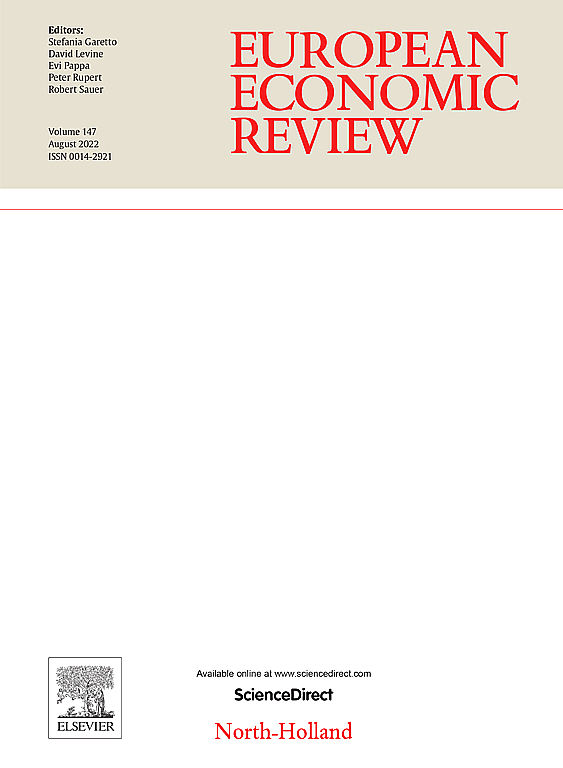
Do Digital Information Technologies Help Unemployed Job Seekers Find a Job? Evidence from the Broadband Internet Expansion in Germany
in: European Economic Review, February 2021
Abstract
This paper studies effects of the introduction of a new digital mass medium on reemployment of unemployed job seekers. We combine data on high-speed (broadband) internet availability at the local level with German individual register data. We address endogeneity by exploiting technological peculiarities that affected the roll-out of high-speed internet. The results show that high-speed internet improves reemployment rates after the first months in unemployment. This is confirmed by complementary analyses with individual survey data suggesting that internet access increases online job search and the number of job interviews after a few months in unemployment.
Working Papers
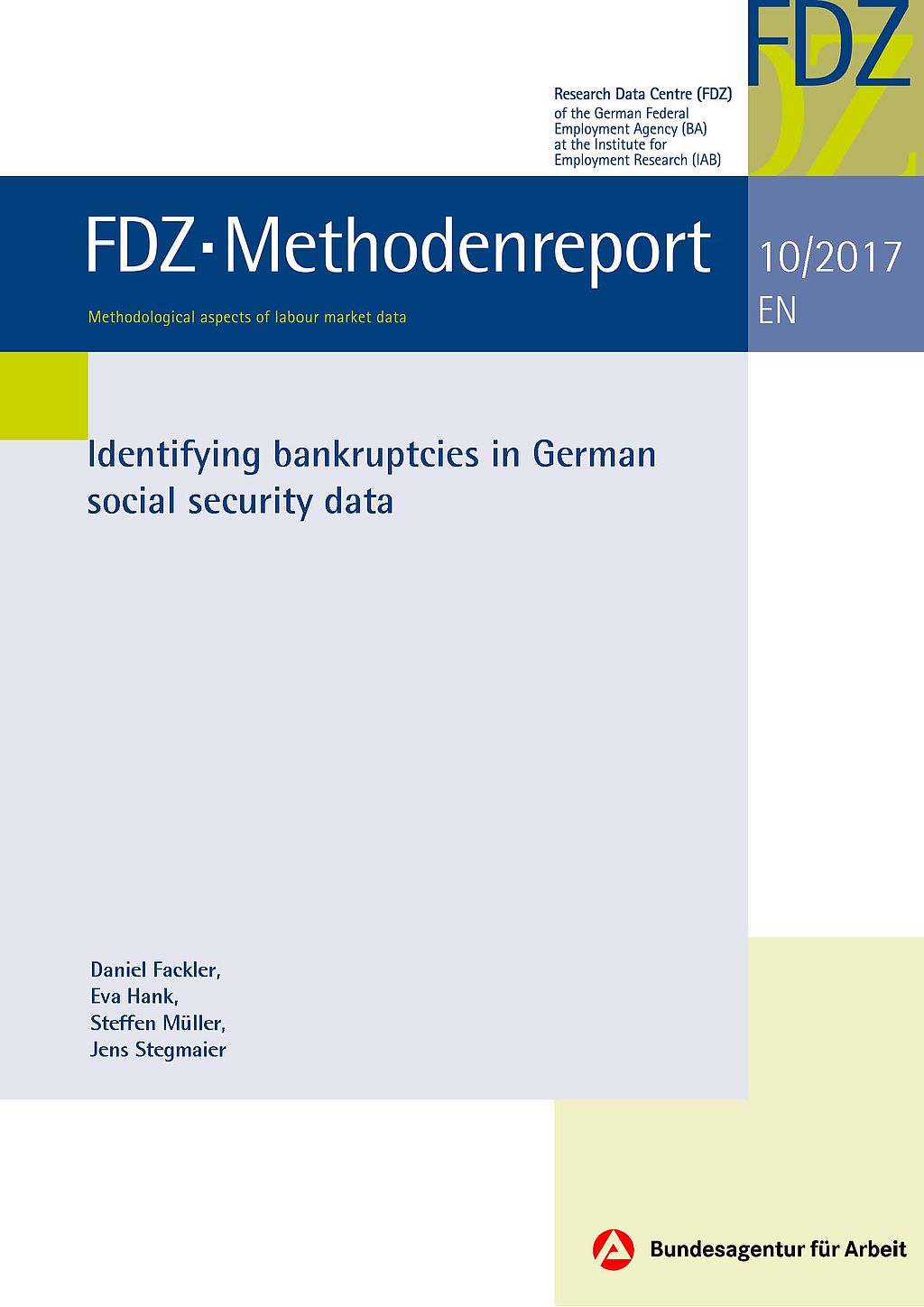
Identifying Bankruptcies in German Social Security Data
in: FDZ-Methodenreport, No. 10, 2017
Abstract
Many empirical studies about firm exits point out that it is important to distinguish between different types of closures, e.g., voluntary and involuntary liquidations. This report describes how exits due to bankruptcies can be identified in the German Establishment History Panel (BHP). In contrast to other closures, bankruptcies can be unambiguously regarded as indica-tion for economic failure and can therefore be interpreted as involuntary exits.


















